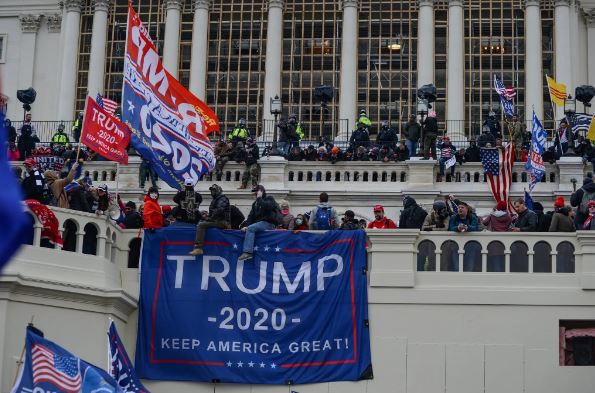A group of Colorado voters has presented its case to the Supreme Court, arguing that former President Donald J. Trump should be disqualified from the state’s primary ballot due to his alleged role in inciting the January 6, 2021, attack on the Capitol. In a court filing replete with images of the riot and excerpts from Trump’s tweets, the voters contend that Trump’s actions constituted insurrection, rendering him ineligible for office.
The voters’ brief accuses Trump of orchestrating a violent assault on democracy, contrary to his oath of office to uphold the Constitution. They assert that instead of peacefully relinquishing power, Trump incited a mob to storm the Capitol in a desperate bid to overturn the election results.
The legal challenge arose after Colorado’s highest court ruled Trump ineligible for the primary ballot, citing his involvement in the insurrection. Trump’s lawyers subsequently appealed to the Supreme Court, seeking intervention in the matter.
The case, Trump v. Anderson, No. 23-719, is scheduled to be heard on February 8, just weeks before Super Tuesday, a pivotal date for primary elections across many states, including Colorado.
At the heart of the dispute is the interpretation of a clause in Section 3 of the 14th Amendment, which bars individuals from holding office if they have engaged in insurrection or rebellion against the United States. The amendment allows for the removal of this prohibition through a two-thirds vote in Congress.
In their brief, the Colorado voters argue that Trump’s legal arguments fail to address the central issue of whether he committed insurrection. They refute Trump’s contention that the language of the amendment does not explicitly include the president, asserting that all elected officials, including the president, are subject to its provisions.
The voters’ lawyers emphasize the historical context of the amendment, highlighting its infrequent invocation over the past century due to the rarity of insurrection against the Constitution. They assert that Trump’s actions leading up to the Capitol attack constitute clear evidence of insurrection.
According to the brief, Trump’s refusal to accept electoral defeat and his inflammatory rhetoric culminated in the violent siege on the Capitol. The filing cites Trump’s tweets urging supporters to gather in Washington, D.C., on January 6, along with images of the chaos and violence that ensued.
The brief recounts the events of January 6, depicting scenes of rioters breaching the Capitol and assaulting law enforcement officers. It underscores Trump’s role in inciting the violence, both explicitly and implicitly, during his speech preceding the attack.
The legal battle underscores the broader debate over the accountability of public figures for their actions, particularly in relation to events as consequential as the Capitol riot. As the Supreme Court prepares to weigh in on the matter, the outcome will have significant implications for Trump’s political future and the broader discourse on insurrection and democratic norms.

